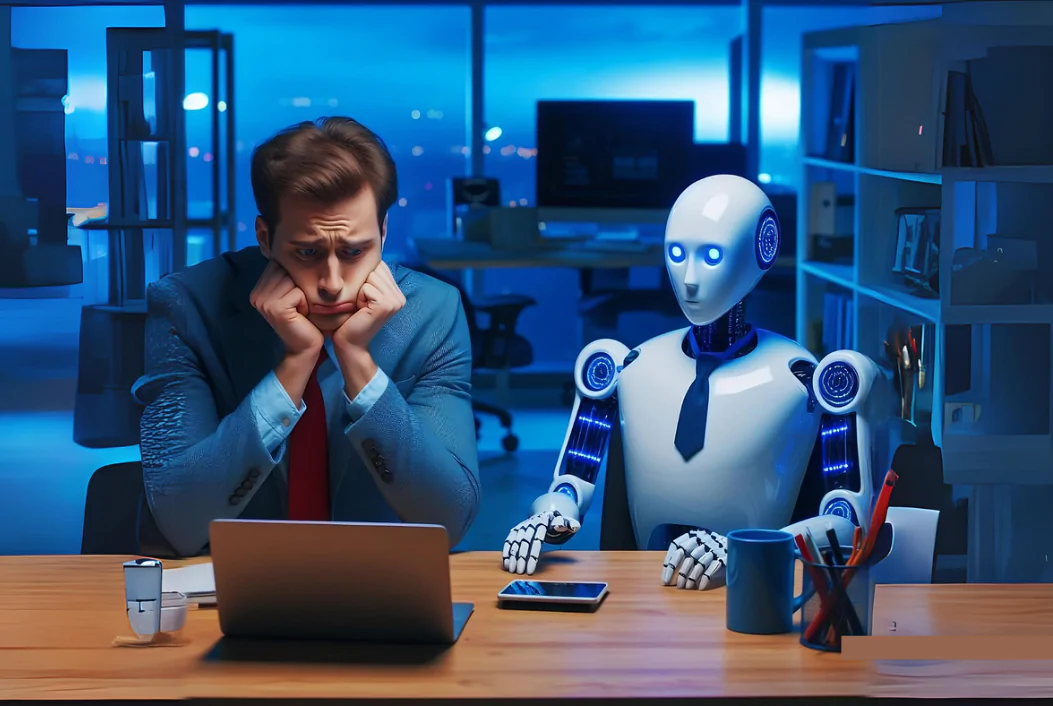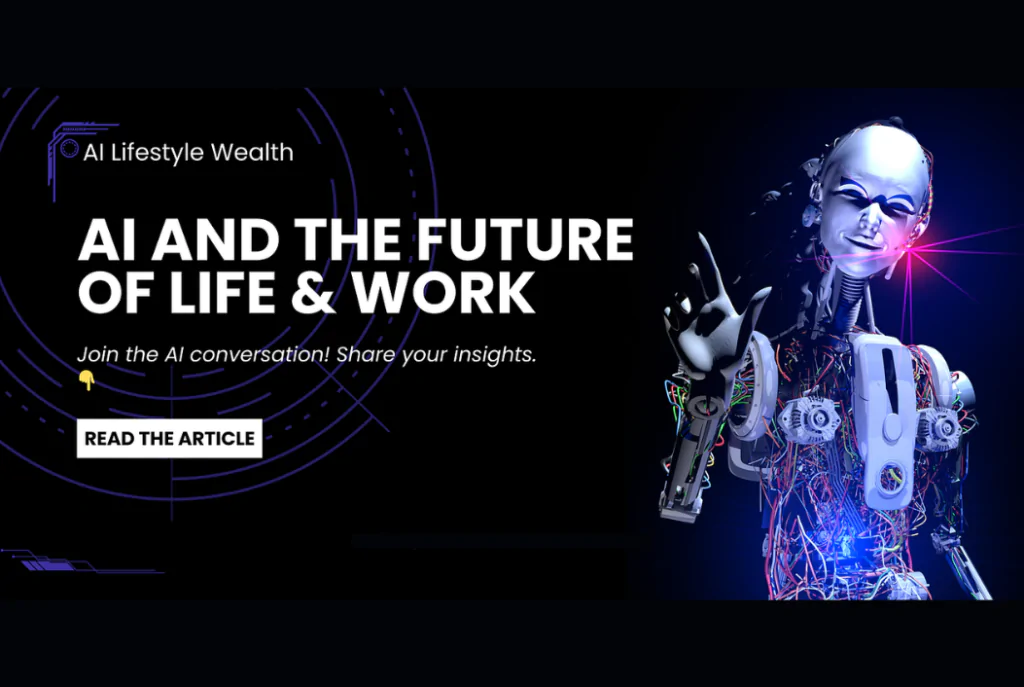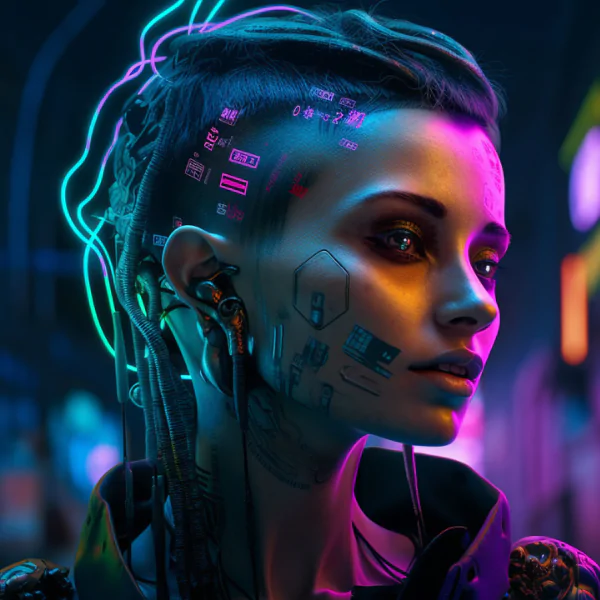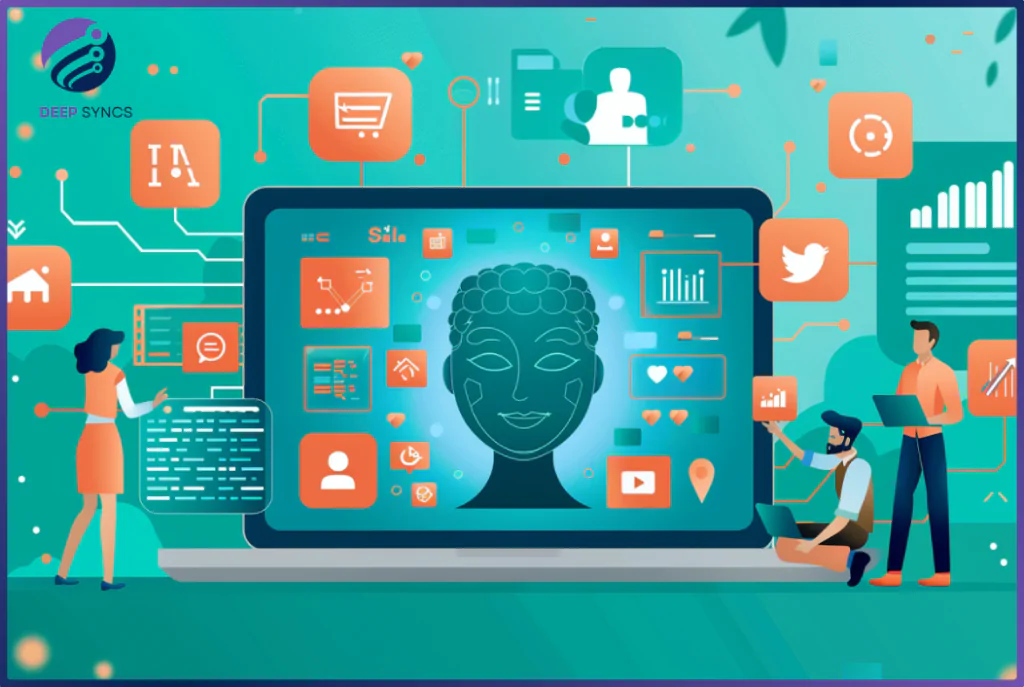Explore ‘AI and the Future of Work‘: A compelling journey into the intersection of human expertise and artificial intelligence.
The world is changing quickly due to artificial intelligence (AI), and the workplace is no exception. Numerous applications of AI are already in use to increase decision-making, automate processes, and develop new goods and services. AI will probably have an even bigger influence on the nature of work in the future as it develops. Automation is one area where AI is predicted to transform the workforce. Robots and AI-powered systems may be able to handle routine and repetitive jobs, freeing up human workers to concentrate on more intricate and imaginative projects. The trend towards automation has the potential to boost efficiency and productivity at work, which would raise output and spur economic expansion.
The integration of artificial intelligence (AI) into the workplace is reshaping the dynamics of modern work environments. Understanding the implications and potential outcomes of this evolution is paramount for businesses and employees alike.
Historical Overview of AI Integration
From its conceptualization in the 1950s to its current state, AI has undergone significant advancements, particularly in recent years, with the advent of machine learning and deep learning algorithms.
Understanding the Impact of AI on Work:
- Automation and Job Displacement: AI’s ability to automate repetitive tasks poses a significant challenge to traditional job roles. Many routine tasks, particularly those in manufacturing, administration, and customer service sectors, are being gradually replaced by AI-driven systems. This displacement necessitates a shift in workforce skill sets and job roles.
- Augmented Intelligence: While AI may replace certain tasks, it also presents opportunities for augmentation. By leveraging AI tools and platforms, workers can enhance their productivity, creativity, and decision-making capabilities. Augmented intelligence emphasizes collaboration between humans and machines, where each complements the strengths of the other.
Adapting to the Changing Landscape:
- Investing in Reskilling and Upskilling: To remain relevant in a workforce increasingly influenced by AI, individuals must prioritize continuous learning and skill development. Reskilling initiatives can help workers transition into new roles, while upskilling programs enable them to enhance their proficiency in areas where AI complements human expertise.
- Embracing Lifelong Learning: The rapid pace of technological advancement necessitates a shift from a mindset of static knowledge to one of continuous learning. Lifelong learning empowers individuals to adapt to evolving job requirements, acquire new competencies, and future-proof their careers against AI-driven disruptions.

AI Facts and Figures
- By 2025, the global artificial intelligence (AI) software market is projected to generate 126 billion dollars in revenue, according to Statista.
- 37% of companies, according to Gartner, have used AI in some capacity. indicating a rise in both the adoption of AI technology and the incorporation of AI expertise into business operations. The percentage of businesses using AI increased by 270% in the last four years.
- AI will power 95% of customer interactions by 2025, predicts Servion Global Solutions.
- According to a new Statista report from 2020, the global AI software market is anticipated to reach a forecast size of USD $22.6 billion and grow at a rate of about 54% annually.
Navigating Ethical and Societal Implications:
- Addressing Bias and Fairness: AI algorithms are susceptible to bias, reflecting the biases inherent in the data used to train them. Addressing these biases requires vigilant oversight and regulatory frameworks to ensure fairness and equity in AI-driven decision-making processes, particularly in areas such as hiring, lending, and criminal justice.
- Promoting Inclusive Growth: As AI reshapes the labor market, there is a growing imperative to ensure that its benefits are equitably distributed across society. Policymakers, businesses, and educational institutions must collaborate to mitigate socioeconomic disparities exacerbated by AI-driven automation and facilitate access to opportunities for all individuals.
Conclusion
The future of work in a world with AI is characterized by both challenges and opportunities. While AI-driven automation may disrupt traditional job roles, it also holds the potential to augment human capabilities and drive innovation. Adapting to this evolving landscape requires a proactive approach to reskilling, upskilling, and lifelong learning, alongside a commitment to addressing ethical and societal implications. By embracing change and leveraging AI as a tool for empowerment, individuals and organizations can navigate the complexities of the future of work and thrive in an AI-driven world.
FAQ
Q1: What is the future of AI in work?
Artificial intelligence has the potential to significantly advance business, automate production procedures, and provide insightful data. AI is being used more and more in a variety of industries, such as manufacturing, cybersecurity, and logistics.
Q2: How will AI change the future?
AI will also choose the best teaching methods according to each student’s unique learning preferences. The educational system might hardly exist by 2028. medical care. AI is probably going to become a common tool used by physicians and physician assistants who perform diagnostic work.
Q3: Does AI replace human worker in the workplace in the future?
It is impossible that artificial intelligence will totally replace human labour. Artificial Intelligence is proficient in automating repetitive, predictable, and rule-based tasks. Still, when it comes to tasks requiring creativity, empathy, and social intelligence, humans still perform better. Having said that, the workforce will probably be significantly impacted by AI.
Learn about Latest AI Tools.



Thank you for reaching out! If you have any specific questions or topics in mind, please feel free to share them, and I’ll do my best to assist you. Whether you’re curious about a particular technology, scientific concept, literary work, or anything else, I’m here to provide information, advice, or engage in a discussion. Don’t hesitate to let me know how I can help you further!
P FEVER Is It Wrong to Try to Pick Up Girls in a Dungeon
素晴らしい記事!これからも高品質な内容を期待しています。
k8 カジノ vip
読んでいてとても勉強になりました。いつも感謝しています。